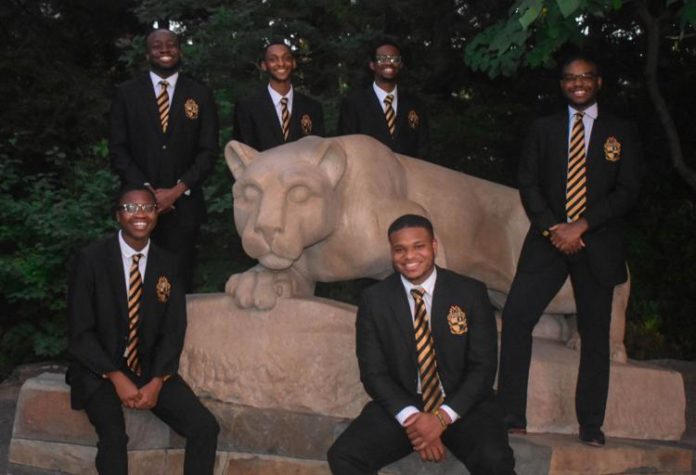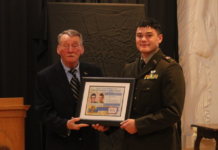“First of all, Servants of all, We shall transcend all.”
This motto is meant to convey the commitment to the community for members of Penn State’s Alpha Phi Alpha — the first of the Divine Nine fraternities and sororities founded in the United States.
The Divine Nine consists of nine fraternities and sororities that make up the National Pan-Hellenic Council, a group of historically African American greek life organizations, founded in the 20th century.
Formed in 1906 at Cornell University, seven Black men — or the fraternity’s “jewels” — came together and formed a study group to help minorities escape segregation at the university.
The study group eventually blossomed into the Alpha Phi Alpha fraternity, which aims to “promote brotherhood and academic excellence, while providing service and advocacy for [its] communities,” according to its website.
Since its conception, civil rights icons such as W.E.B. Du Bois, Thurgood Marshall and Martin Luther King Jr. have passed through the organization and left their mark on society — leaving big shoes to fill for current members.
Penn State student Jaylen Carr, fundraising chair of Alpha Phi Alpha, said to follow in those footsteps is an “honor.”
“It’s an honor and it’s motivational,” Carr (junior-civil engineering) said. “You have fellow brothers who have done so much to shift the lives of not only African Americans, but the culture in America.
“Just seeing the impact that they’re able to have, you can only hope that you can have an impact close to what they’ve had.”
Carr said he believes the example former members have set leaves no room for excuses as to why he can’t serve the Penn State community through Alpha Phi Alpha.
“If they could have done it when times were even insurmountably harder than what they are now,” Carr said, “there’s no excuse for me not to be able to give back to my community.”
One way Alpha Phi Alpha is giving back is through its program, “Brother’s Keeper,” which strives to improve the lives of former members and their families, whether it be assisting in upkeep of a member’s home or providing companionship.
Zack Alexis, historian of Alpha Phi Alpha, believes that to make an impact within the community, one needs to take small steps.
“You have to take a step back and just look at the smaller picture at times and just do your part in the local community — with the hopes that it can snowball into something bigger,” Alexis (sophomore-mechanical engineering) said. “I always say, ‘Don’t try to be great’ because you don’t actually have to be great within your four years in college… it’s a lifetime commitment.”
Daniel Gizaza, president of Alpha Phi Alpha, said he believes the fraternity has made a positive impact on the Black community at Penn State.
“I feel as though it has made a really big impact, especially for [the] Black community, and it’s given us a network and people to look up to,” Gizaza (senior-marketing) said. “It’s a lot of people that decided to join the organization because they wanted to do better for themselves and for their community.”
TaiRe Daniel, a member of Alpha Phi Alpha, said he went into the fraternity believing it was only something he would be a part of during his college years, but later learned it reaches beyond college. He said he believes no matter how far members get from college, they’ll be a member of the fraternity.
“I think what sets Alpha apart is that you’re always an Alpha, which is something that prior to [my] joining, I didn’t really get the concept. I always heard people say that they were in a fraternity while they were in college,” Daniel (junior-mechanical engineering) said, “but if you ask any Alpha today, no matter how old they are… they will still say they are Alphas.”






















